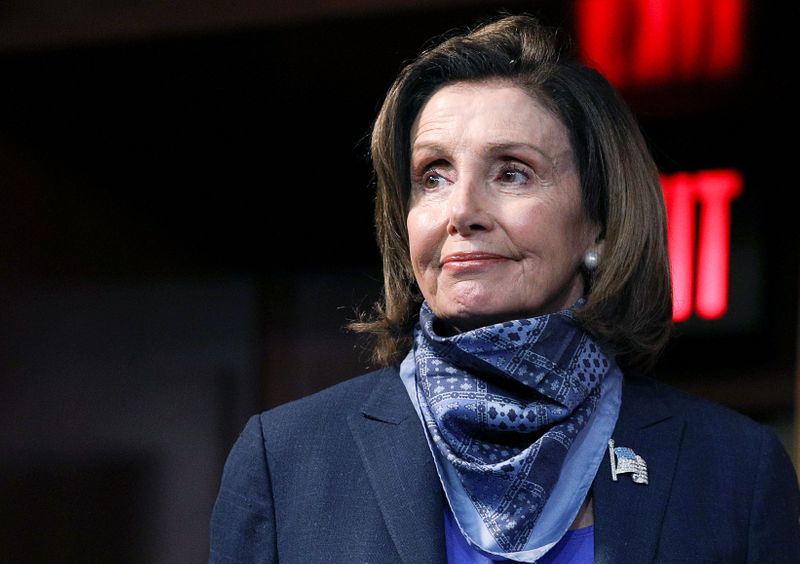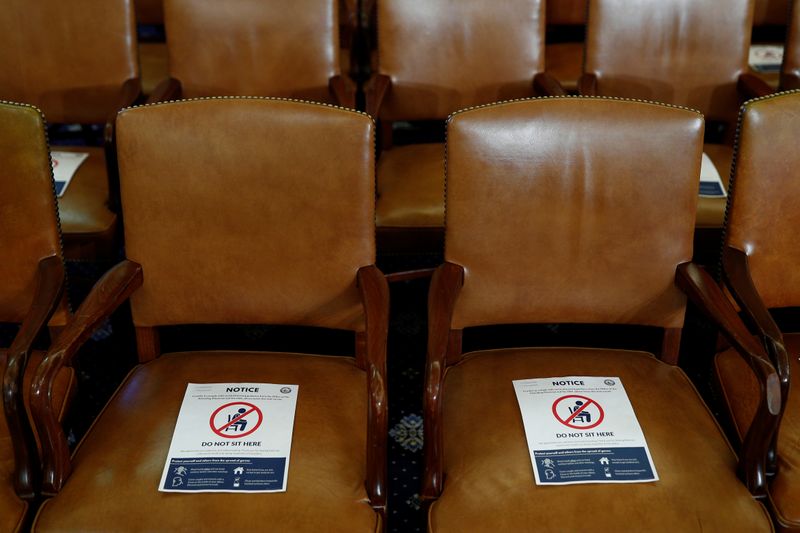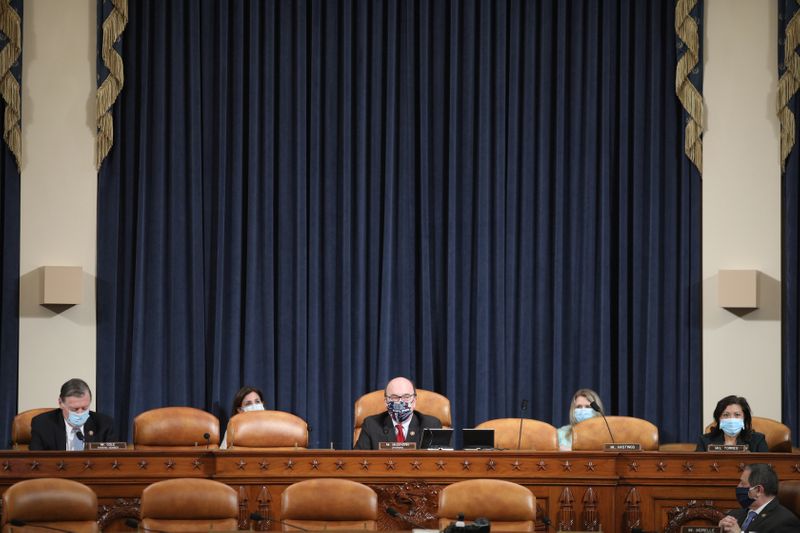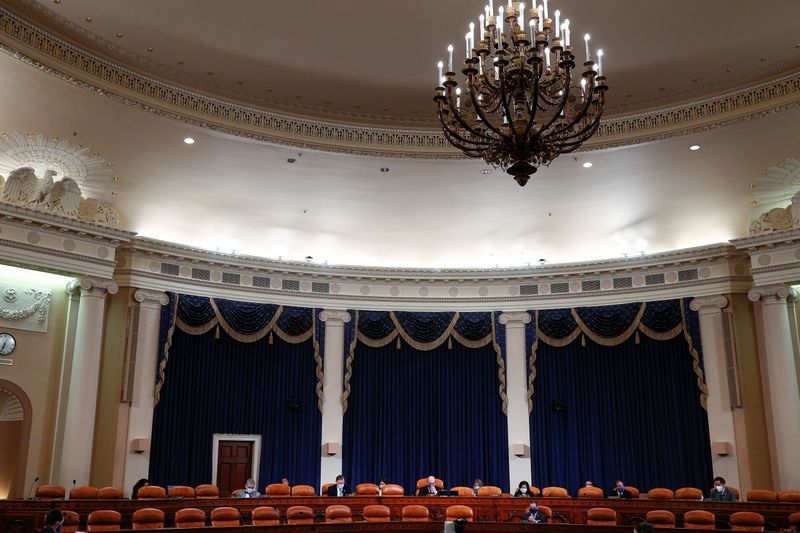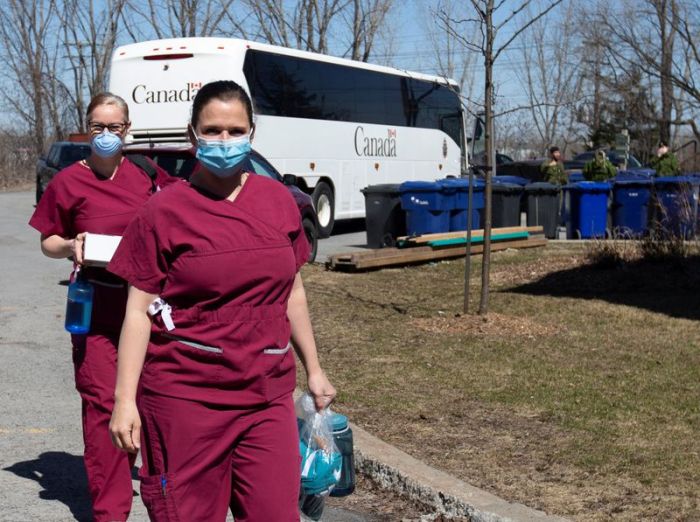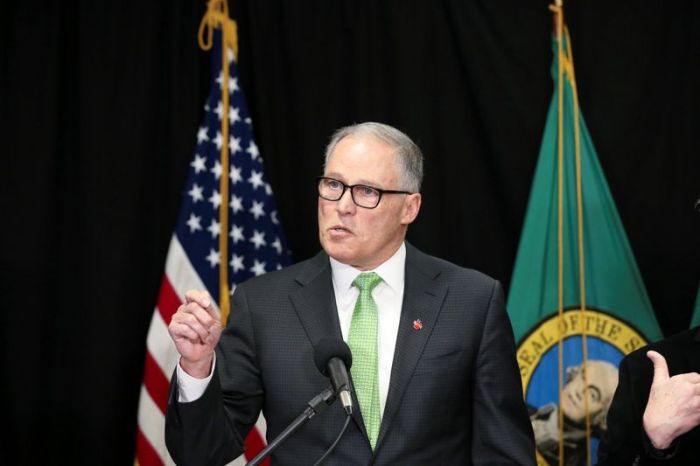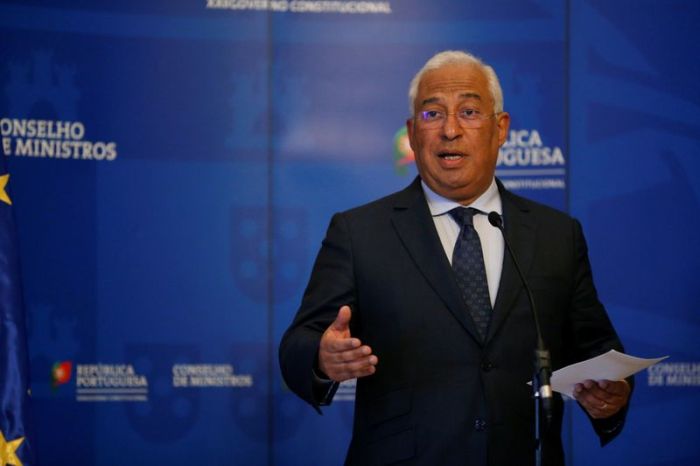WASHINGTON (Reuters) – The U.S. House of Representatives expects to pass a nearly $500 billion coronavirus relief bill on Thursday but will put off any decision on changing its voting rules during the pandemic, avoiding a potential partisan fight.
The bill, which will provide funds to small businesses and hospitals struggling with the economic toll of a pandemic that has killed more than 45,000 Americans, is expected to be the fourth coronavirus measure passed by Congress, boosting the overall federal financial response to almost $3 trillion.
Democratic House Speaker Nancy Pelosi backed away from calling for a vote on a measure that would allow members to cast proxy votes on colleagues’ behalf during the crisis to promote social distancing and limit the risk of members being exposed to the virus, lawmakers and aides said.
The response to the pandemic has become a political flashpoint with some Republican governors and President Donald Trump saying the widespread closures of businesses, schools and social institutions are causing economic dislocation that outweighs the damage caused by the virus. In Congress, a growing number of Republicans have been arguing for lawmakers to return to work.
“Congress is essential. The American public needs to see that we are working. The American public has to understand that we can do it in a safe manner so states and others can begin to open as well,” House Republican leader Kevin McCarthy said Wednesday at a news conference outside the Capitol.
Instead of pushing through the vote-by-proxy measure, Pelosi told other leading Democrats on a call that she and McCarthy would have a bipartisan group of House lawmakers review remote voting by proxy and reopening the House.
Congress has not met in regular session since last month, and is in recess until at least May 4 because of the pandemic. But House leaders have called members back to Washington for a Thursday vote on the coronavirus aid.
The Republican-controlled Senate approved the aid on a voice vote on Tuesday, but with some opposition expected in the House, leaders decided to bring members back for a roll call vote.
The proposal Democrats scrapped would have allowed proxy voting for the first time, so that in the future House members who cannot attend because of the pandemic can ask other members to vote for them.
House Republicans were opposed, saying there are already measures in place to ensure Congress can act in an emergency. In a telephone call with Pelosi on Wednesday, McCarthy said he urged her to study the options on a bipartisan basis.
“Whatever we do when it comes to voting … should be bipartisan,” McCarthy told reporters. He said Congress could be reopened in stages to accommodate health concerns.
(Reporting by Susan Cornwell, Doina Chiacu, Susan Heavey and Lisa Lambert; Editing by Scott Malone, Howard Goller and Jonathan Oatis)

